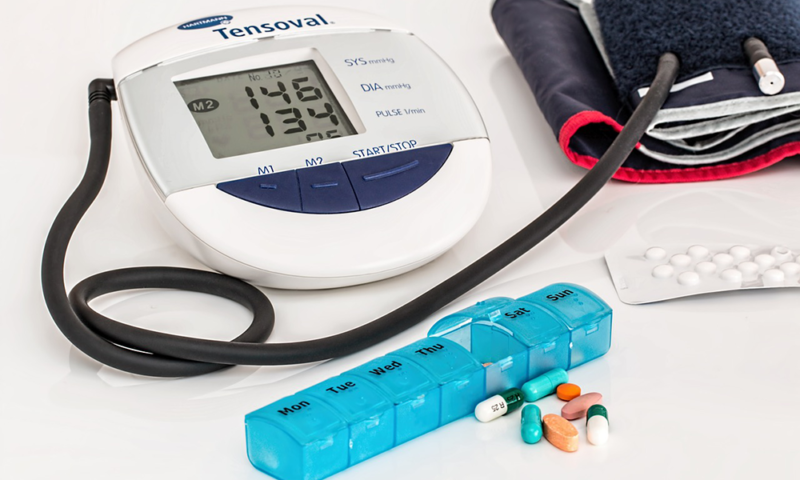Did you know that weight and hypertension (high blood pressure) are very closely connected? While the number of people with obesity in the U.S. continues to increase, an estimated 58 to 65 million adults have hypertension and other related health conditions.
In fact, hypertension is cited as the number one reason adults visit their healthcare provider and is also one of the most common uses for prescription drugs.
What is Hypertension?
Hypertension refers to the pressure that your blood applies to the walls of your arteries. When blood pressure is high, your blood vessels are working harder to supply oxygen and nutrients to your heart. It is generally classified into these categories:
- Healthy Blood Pressure: Systolic (top number) equal to or less than 120 mmHg; Diastolic (bottom number) equal to or less than 80 mmHg
- Pre-hypertension: 120 – 139 mmHg (systolic); 80 – 89 mmHg (diastolic)
- Hypertension: Stage 1 (140 – 159 mmHg systolic or 90 – 99 mmHg diastolic); Stage 2 (Greater than or equal to 160 mmHg systolic or greater than or equal to 100 mmHg diastolic)
Know Your Risk
To officially qualify as having hypertension, you must first be diagnosed by a healthcare provider. Typically, this condition is based on the average of two or more properly measured blood pressure readings. Note: sometimes patients experience “white coat syndrome,” or above-normal blood pressure readings due to anxiety or discomfort while at an office visit.
You might be at risk for hypertension if you are affected by obesity or have noticed the number on the scale creep up consistently. If you have a high Body Mass Index, (BMI), perhaps more than 30, and/or carry excess fat around your abdomen, you may also be at risk. Abdominal obesity has the greatest influence on whether someone will develop hypertension.
Higher weight is considered a risk factor for hypertension and heart disease for a number of reasons, some of which include increased LDL (bad) cholesterol levels, decreased HDL (good) cholesterol levels, hardening of the arteries and strain on the heart.
Managing Weight and Hypertension
Excess weight is associated with hypertension, which is associated with other conditions that impact health and quality of life. If you are experiencing high blood pressure, first consult with your healthcare provider and he or she may choose to administer medication. But beyond that, there are a number of lifestyle changes you can make to manage both of these health conditions:
- Eat more fruits, vegetables and low-fat dairy products
- Limit your intake of saturated and total fats
- Lower your sodium intake to less than 2,300 mg/day
- Get active for at least 30 minutes/day; 150 minutes/week
- Moderate your consumption of alcohol
- Manage stress and engage in stress-reducing healthy activities
Even moderate weight-loss of just 5-10 percent can have significant health benefits, including lowering your blood pressure. For more information on weight and hypertension, CLICK HERE to read the full article from the Obesity Action Coalition’s (OAC) Weight Matters Magazine.






